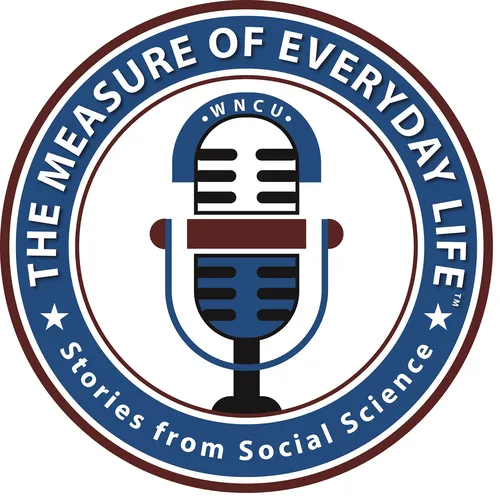
The Measure of Everyday Life
Interested in human behavior and how people think? The Measure of Everyday Life explores ideas about how we live and why people act as they do. Independent Weekly has called the show "unexpected" and "diverse" and says the show "brings big questions to radio." Join host Dr. Brian Southwell (@BrianSouthwell) as he explores the human condition.
Episodes air each Sunday night at 6:30 PM in the Raleigh-Durham broadcast market and a podcast of each show is available online the Wednesday following. The show is made possible by RTI International.
- Update frequency
- every 10 days
- Average duration
- 29 minutes
- Episodes
- 103
- Years Active
- 2021 - 2025

Depopulation and the Future of Cities
The idea that we have more and more people on this planet has been prominent in recent decades but some researchers now project a future of declining population in some parts of the world, including …

How Fatal Use of Force Affects Communities
We sometimes hear about fatal use of force by police officers and yet we tend to not talk about the potential long-term effects of those tragedies on community members who were not directly involved.…

Pandemic Resilience in Secondary Education
Although the COVID-19 pandemic has challenged and complicated school administration across the U.S. and around the world, we also are starting to hear stories of resilience. On this episode, we talk …

The Experiences of Black and Hispanic Science Researchers
As recently as 2021, more than 30,000 U.S. citizens earned a PhD and yet the demographics of that group do not reflect the U.S. population overall, particularly in the case of science, engineering, …

Encouraging Organizations to Go Above and Beyond
At the end of each calendar year in the United States, many people talk about charity and voluntary contributions, much of which involves non-profit organizations. In recent years, U.S. government ag…

The Future of Our Public Health Workforce
During the week of Thanksgiving in the US, many of us are busy with holiday meal planning and getting together with family. It is also a time when we can thank public health officials for Public Heal…

Women in Science
Women made crucial contributions to scientific inquiry for a long time and yet scientific professions has lacked equity in many ways. On this episode, we talk with Lisa M. P. Munoz, author of Women i…

Keeping Families Safe in the Current Media Landscape
You can find all sorts of content on social media platforms. Some organizations attempt to use social media to keep families safe but how successful has that work been? On this episode, we talk with …

Ending the Use of Race in Clinical Algorithms
Algorithms are essentially sets of instructions for what steps to take in response to input. They are embedded into many aspects of our everyday life and doctors even use algorithms to generate advic…

Coping with Trauma
Emotional abuse and manipulation can cause harm in interpersonal relationships and for society. On this episode, we focus on the science of healing from interpersonal trauma with professional counsel…

Partnering with People with Intellectual and Developmental Challenges
People who face challenges from intellectual and developmental disabilities comprise important audiences for many public health communication efforts. What are the best ways to support and work with …

Friendships and High School Dropout
As another school year starts in the United States, we have opportunities to support students who are considering dropping out of school. On this episode, we talk with Marie-Hélène Véronneau of the U…

Dogs, People, and Science
Chances are that you or someone you know has a dog in the house. What do we know about the relationships between people and dogs? On this episode, we talk with authors of The Purest Bond: Understandi…

Loneliness and Social Media
Social media may play a role in our collective loneliness but researchers now also are attempting to use social media tools to reduce loneliness. On this episode, we talk with two University of North…

Artificial Intelligence and People
A new generation of artificial intelligence applications have flooded many workplaces and smartphones. What types of relationships will people have with artificial intelligence technologies? On this …

Equity, Education, and Childcare
Daycare and early childhood education sites are more than vibrant places with children laughing and eating snacks. Such places also offer important opportunities to promote equity and justice. On thi…

How to Talk about Public Safety Reform
In recent years, protests and dialog have emerged regarding the roles police units should play in responding to public safety needs. On this episode, we talk with two people involved with producing a…

Evaluating with Equity
Phrases such as “racial equity” and "social equity" have been prominent in recent years. How to evaluate social interventions with equity in mind has received less attention, though. On this episode,…

Social Norms and Corruption
We know that social norms can influence many types of behavior. Can social norms predict corruption? On this episode, we talk with Lisa McGregor of RTI International, Richard Nash of the Internationa…

Giving Voice to Air and Water Quality Concerns
We are fortunate to be able to breathe air and drink water. Everyone doesn’t enjoy the same air and water quality, though. How can we know whether what we consume is safe? What do people think about …